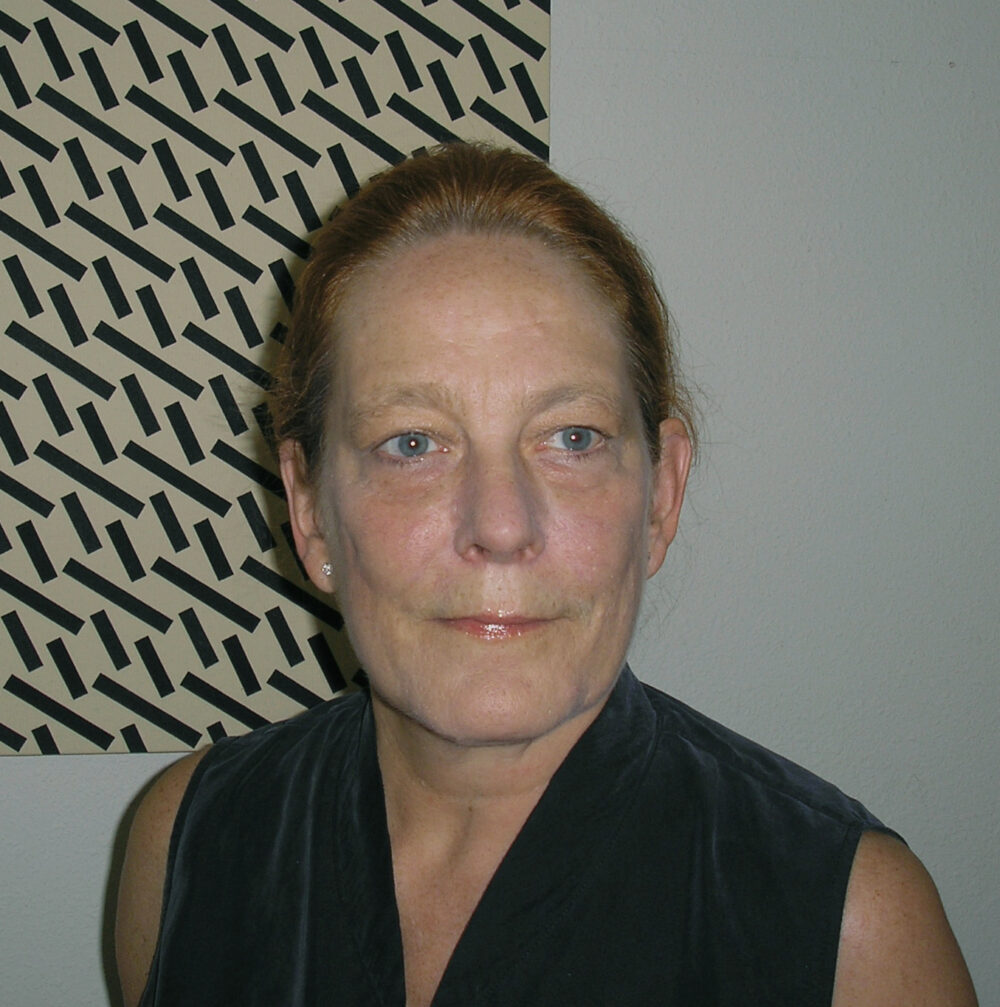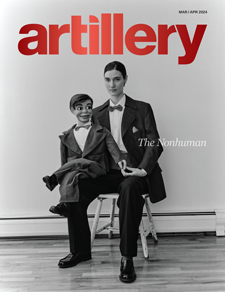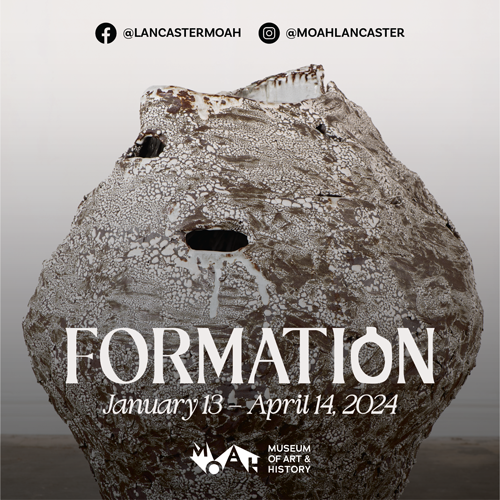Frances Colpitt, renowned art historian, author, curator, feature writer and contributing editor for Art in America for over 20 years; teacher and mentor, died in her Fort Worth, TX, home September 12, 2022. Colpitt, who recently retired from her position as the Deedie Potter Rose Chair of Art History, Texan Christian University School of Art was working on a third book about minimalism and formalist perspectives—the subject of her expertise.
In addition to her MA in Humanities from the University of Tulsa (TU) and a Ph.D. from the University of Southern California (where she taught for many years), Colpitt had also earned a BFA from TU which served her well in understanding and describing the nuances of the artistic process with her subjects, many with whom she became close friends including LA artists Donald Judd, Ed Moses, Jim Hayward and Edith Baum Hudson.
Colpitt’s two books: Abstract Art in the Late Twentieth Century with Cambridge University Press, 2002, and Minimal Art: The Critical Perspective, Seattle, University of Washington Press, 1993, have become educational staples in art history curriculums.
A prolific writer, Colpitt penned hundreds of articles, museum and commercial catalog essays, gallery brochures, reviews, news stories as well as formal papers for many premiere magazines including Artillery, as well as galleries, and museums.
Director of the TCU School of Art, Dick Lane remembers Colpitt: “TCU’s School of Art had been Fran’s home base for the past 20 years. We were so fortunate to have had her be a part of our community of artists and art historians. We are just now beginning to feel the loss of a great colleague who was a brilliant researcher, writer and thinker. From where I sit, the loss of Fran who had a really great sense of humor and irony, means that my days will be a little less than they were. She was a one-of-a-kind special person and we were lucky to have her as part of our team for as long as we did. She will be greatly missed by faculty and in particular our graduate students who just absolutely loved her courses.”
Despite her academic prowess, Colpitt was ever accessible with a quick wit and an even quicker, infectious laugh. Humble, Colpitt would be loathe to read this account and would quickly dismiss the attention. She will be missed not only by friends and family but by colleagues, students and readers who will be at a loss for her insights and gentle turn of phrase.
—Michael Delgado



















Fran Colpitt was smart as a whip and wicked funny. Fort Worth is a lesser town without her.
Libby Lumpkin, Santa Fe, NM
Recently we had an exchange of emails that begin with a critique of a particular review and ended with her condolences on the passing of my old dog. Her sharp and always-ready intellect and equally gentle heart will be so greatly missed in this world.
Fran was my chair at University of Texas San Antonio. My favorite memory of her is when a student in my class complained to her that I had used a curse word in class. (It was “hell”)
Fran called me into her office and said “God damn it Kay, if you use curse words in your class, I’m going to have the whole right wing at this University in my office, so lay the fuck off”.
I loved her when we overlapped at USC and got my 2 year position at UTSA because of her.
She was amazing, a truely original mind and a good friend.
I first met her with Tulsa Kinney in San Antonio and never have forgotten that meeting.
Bix and David
It was a pleasure to meet and converse with Fran at USC and to read her fantastic reviews in Art In America and other magazines. She will be missed.
Such a great loss to our arts community. Fran’s brilliance will be missed.
I met Fran and her lifelong partner Donny Walton when they lived in Hollywood in the early eighties. She was working on her dissertation at USC, writing day and night, traveling to conduct interviews with artists relevant to her beloved subject matter. Yet, when Donny and I formed a cover band playing selected hits from the fifties and sixties, she drove us to hundreds of gigs in her Jaguar. She was a consummate fan of the music and supporter of Donny’s efforts. They then moved to Santa Barbara where she attended UCSB, and then to Ithaca for more work at Cornell. That was where I last saw her and Donny in person. Her dedication to her mission and to Donny, and her strength of character were truly inspirational. She didn’t mess around. I can’t think of a time when she was difficult or not amused. She never spoke ill of anyone or thing. She was crushed by the loss of Donny a few years ago. Her high levels of integrity, intelligence, dedication, focus, kindness and modesty are unmatched among my peers.
It’s been hard to say just Fran these last few years when instinct always kicks out “Fran and Don.” They were peas in a pod. I miss them both and I like to think they are together again, smoking.
Fran’s academic accomplishments were considerable, but it’s those intimate conversations, most of it laughing, that were her greatest attribute.
There are so many stories and fond memories!
Adios Fran! I love ya.
One of the best things I did in graduate school at UTSA was travel with Fran and other students to Los Angeles. Fran organized the trip to include major galleries, museums and artist’s studios throughout the city. At her suggestion, we stayed in an inn very close to Venice beach. We had lunch with James Hayward at The Farmer’s Market and had a studio visit with Dennis Hollingsworth in a repurposed restaurant in Chinatown.
Fran’s breadth of knowledge of artists and her critical insights, especially into abstract painting, will always stay with me. Fran and Don warmly welcomed faculty, students and guests to a fun and memorable party at their house when they lived in San Antonio. She will be greatly missed.
An inspiration as a scholar and a teacher, and a priceless human being. She was wicked funny and passionate about art and ideas. I was lucky to do my MA with her at USC and in subsequent years (when we both were attending CAA) we’d split an anchovy pizza and a pitcher of beer. I’ve never met a former student of hers who didn’t adore her. She is missed!